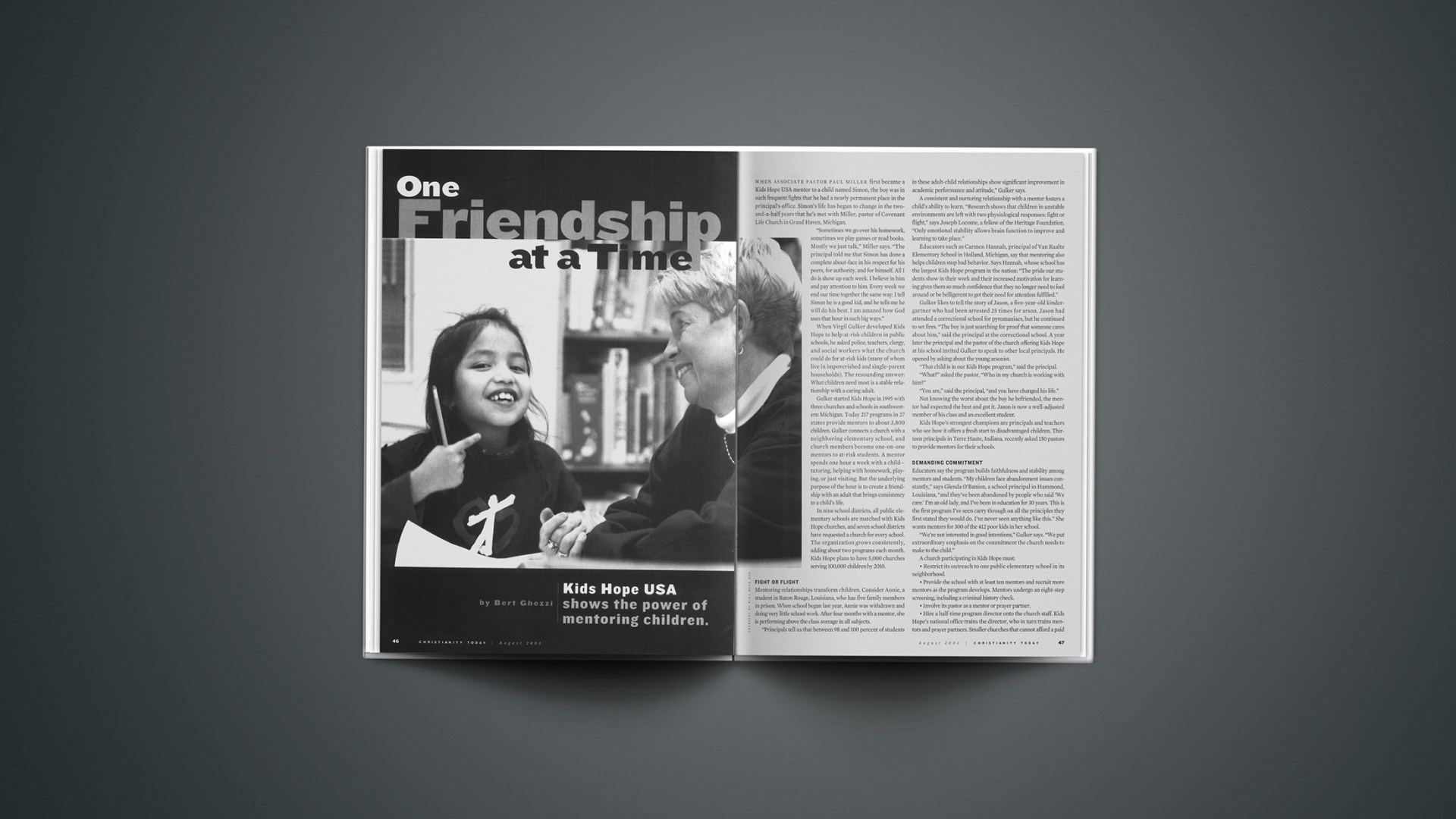How do you respond to the claim that the real problem in our schools is that God is no longer welcome there?
I don’t think any question or issue has frustrated me more than this one. He has not left. We have. I honestly believe that God roams the hallways of America’s public schools looking for us. He longs for us to be Jesus-with-skin-on for these children. If God is in fact not welcome in these schools, why is it that 60 percent of requests for Kids Hope programs nationwide now come not from churches but from public school personnel? They look for that organization in their community that has the word love in its mission statement, and they find it in the local church.
How do you explain why at-risk kids improve their learning skills so quickly after they receive a mentor?
We have discovered that in order to meet the academic needs of these children, we must first meet their emotional and social needs. As we give them increased self-confidence and self-esteem, they are almost automatically empowered to learn.
As you introduce love and nurture into the lives of at-risk children, they begin to learn almost instantaneously. Our record is twelve minutes for Nathan, a child who had not participated in any classroom activity for two and a half years. Suddenly, after just meeting his mentor, the boy would not put his hand down. When asked what he had done to accomplish this extraordinary change, the mentor reported that he had said only two things: “Nathan, I’m happy to be with you today” and “Nathan, I think we’re going to be really good friends.” By touching the heart of this child, in a matter of minutes he was able to accomplish significant change in the mind of the child.
Of the Kids Hope success stories, which one has moved you most?
I am always moved by the majesty and power of a mentor’s simply addressing a child by name. One that I will never forget occurred recently in Houston, Texas. At their first session, a mentor asked a child what she would like to be called. The little girl was so lacking in self-esteem that she could not even look into the mentor’s eyes. She said, “Maybe you could call me what other people call me.”
“What do they call you?” asked the mentor.
“They call me Idiot.”
The mentor responded by calling the child Roxanne, her real name. And each week she showered the girl with names she had never heard: awesome, wonderful, special, smart, pretty. And then the one name that touched the child: “Roxanne, will you be my friend?”
As a result, Roxanne gradually began to behave with confidence in school and in relationships and to acquire a healthy sense of self-respect. I like this story because it demonstrates how simple gestures of love and respect can bring healing and transformation into lives of children who have been damaged by neglect and abuse.
Copyright © 2003 Christianity Today. Click for reprint information.
Related Elsewhere
Also appearing on our site today is:
One Friendship at a Time | Kids Hope USA shows the power of mentoring children.
The official Kids Hope website includes the group’s mission and testimonial stories.
For more Christianity Today stories on missions and ministries and youth, see our archives.










